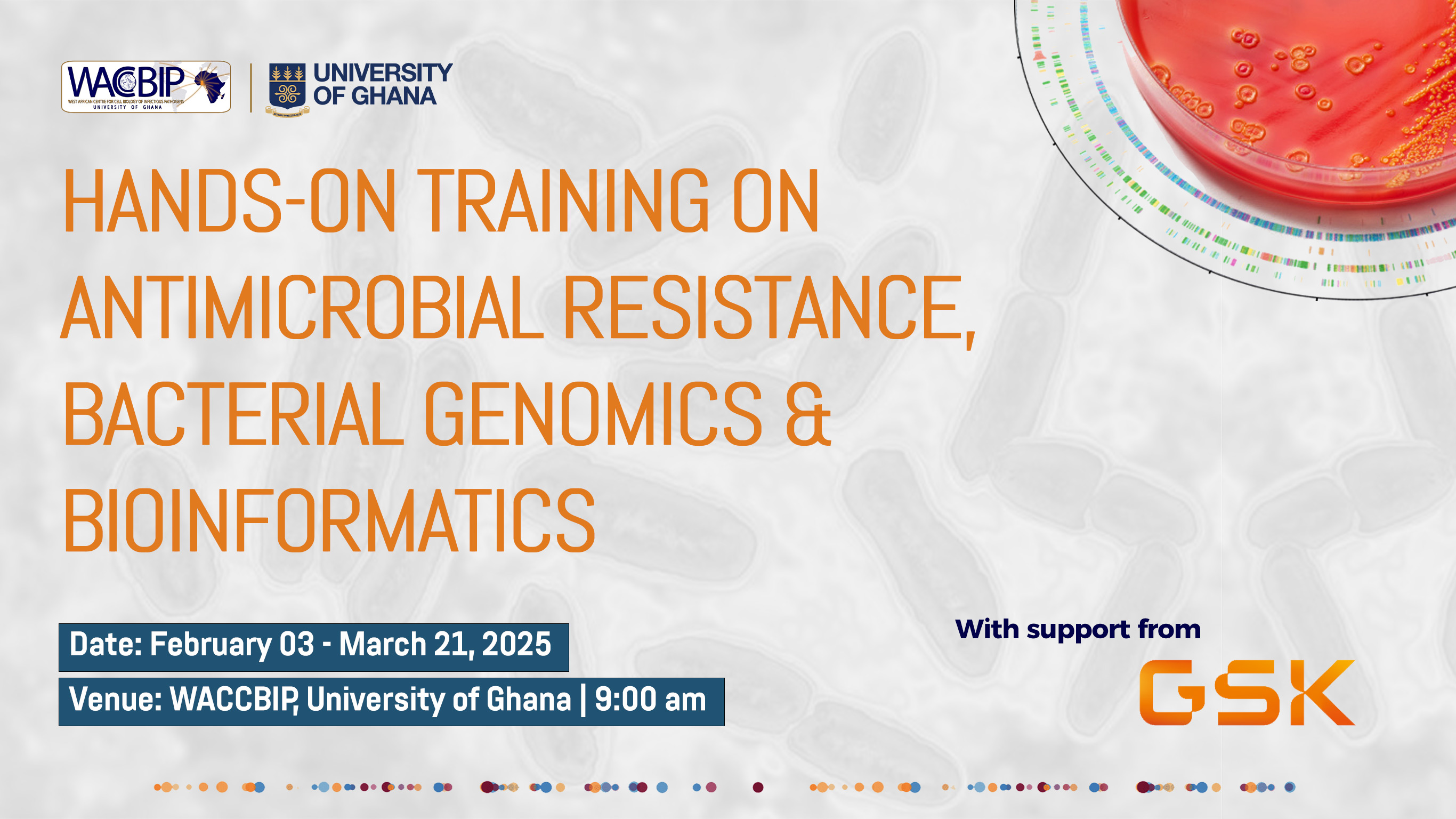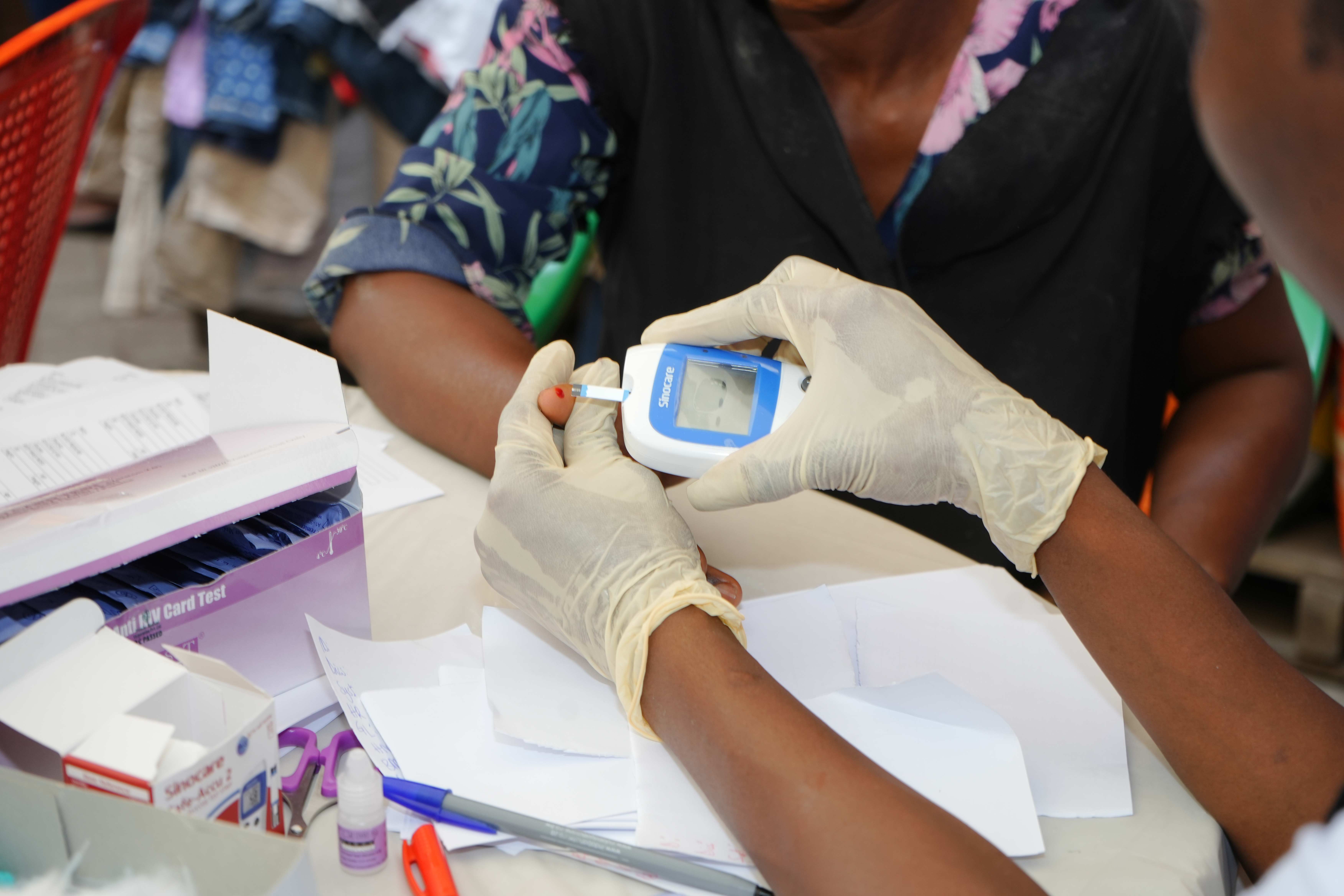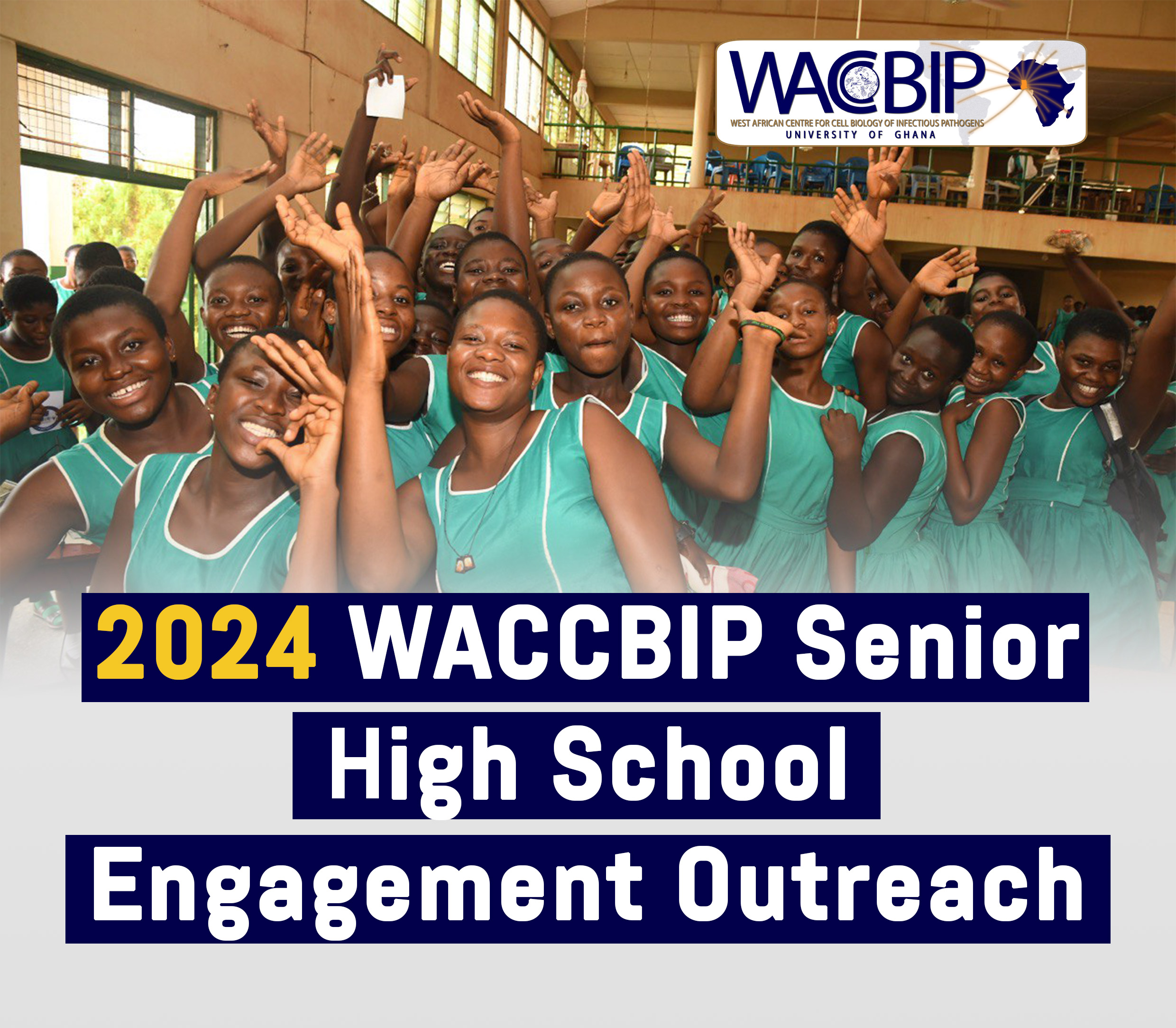The West African Centre for Cell Biology of Infectious Pathogens (WACCBIP) has completed, for the third year running, an outreach tour of high schools as part of its Senior High Schools Outreach programme.
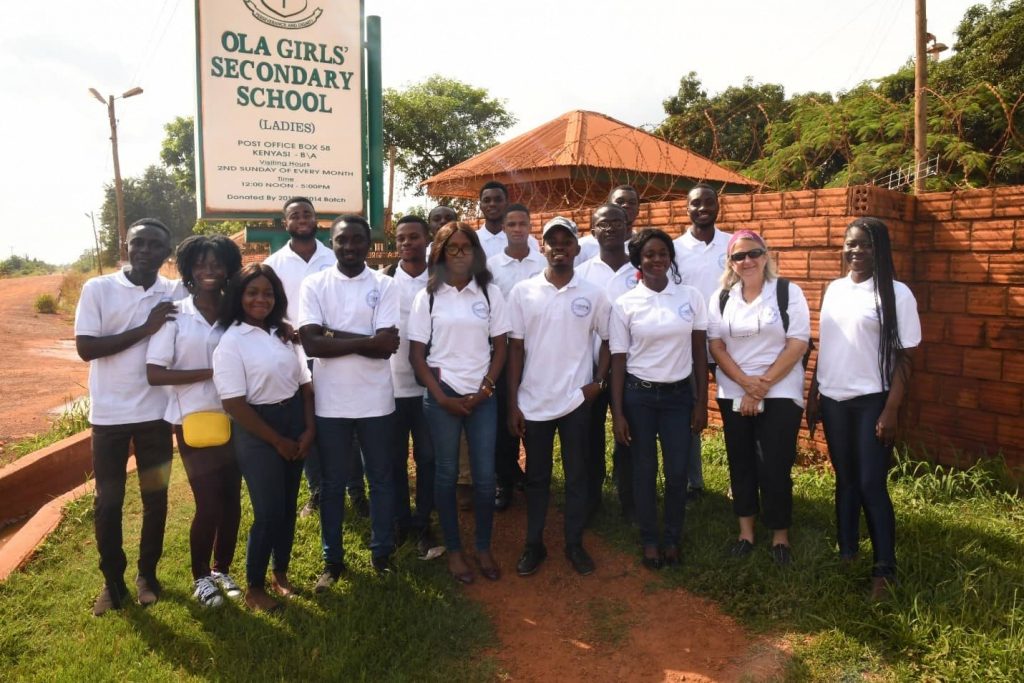
The programme, facilitated by a team of the Centre's Graduate Interns and research fellows under the Wellcome Trust Developing Excellence in Leadership, Training and Science (DELTAS) Africa initiative, was organised in furtherance of WACCBIP's goal of promoting science education, awareness and appreciation among students in sub-Saharan Africa. This year, from May 6 to May 10, a team comprising 16 Graduate Interns and senior research fellows visited seven schools in the Ahafo and Western North Regions.
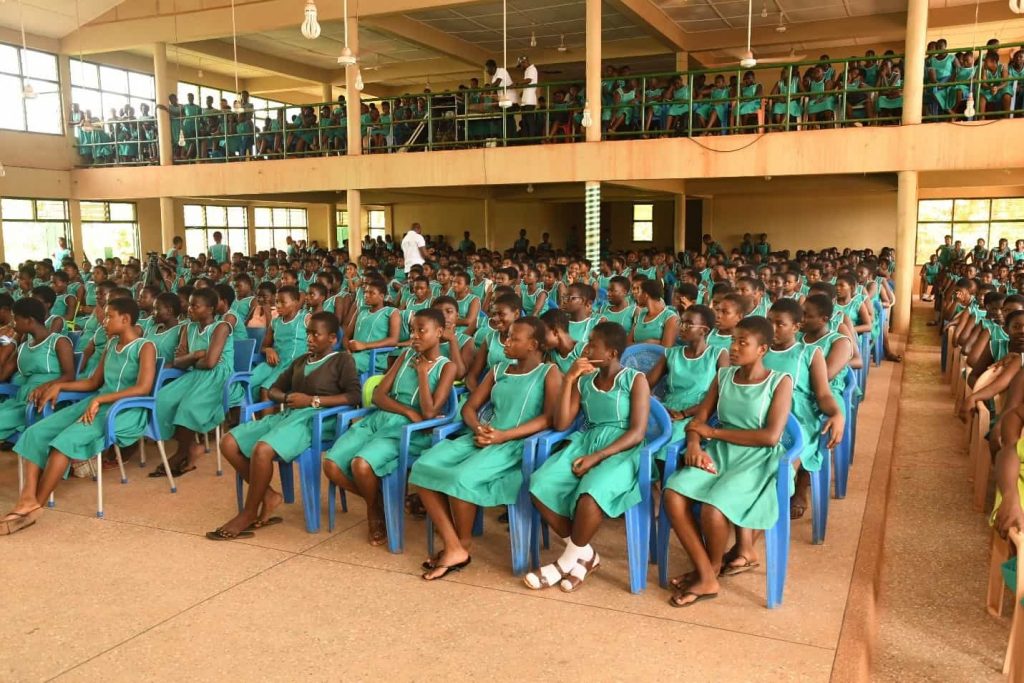
Interactive sessions at OLA Girls' senior high school
The team interacted with more than 1500 students on visits to the OLA Girls' Senior High School, Acherensua Senior High School, Hwediem Senior High School, Mim Senior High School, Ahafoman Senior High School, and Kukuom Senior High School in the Ahafo Region and Bibiani Senior High School in the Western North Region.
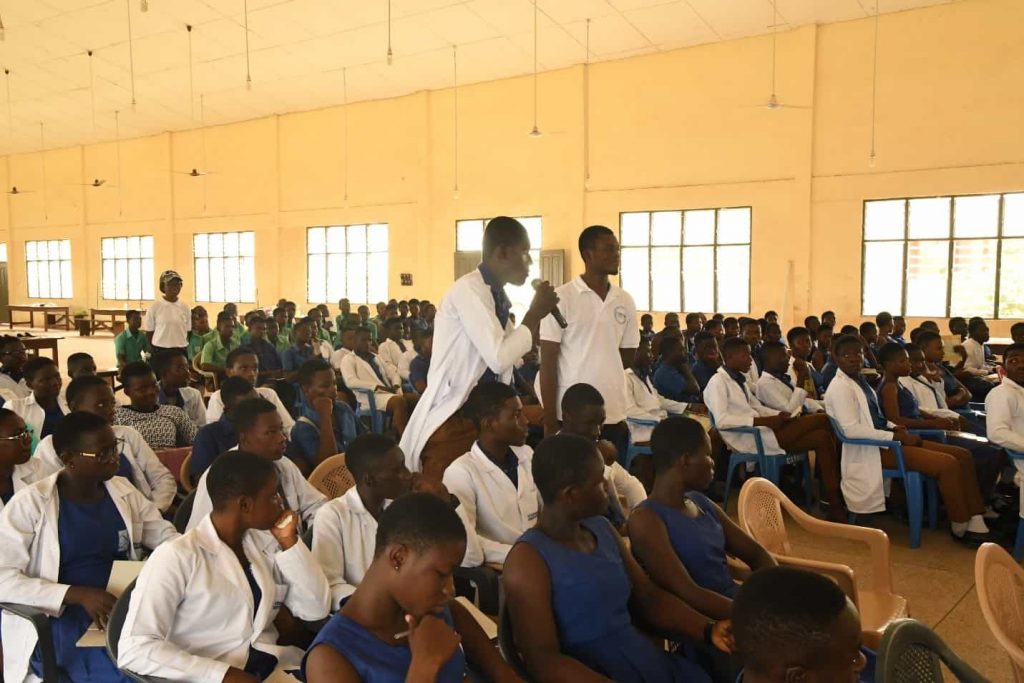
A Combine group of students from Acherensua and Hwediem senior high school
In each school, the team facilitated practical sessions in microscopy, DNA extraction, small and large volume pipetting, and RDT testing. They also made donations of stationery, with support from Inqaba Biotec West Africa.
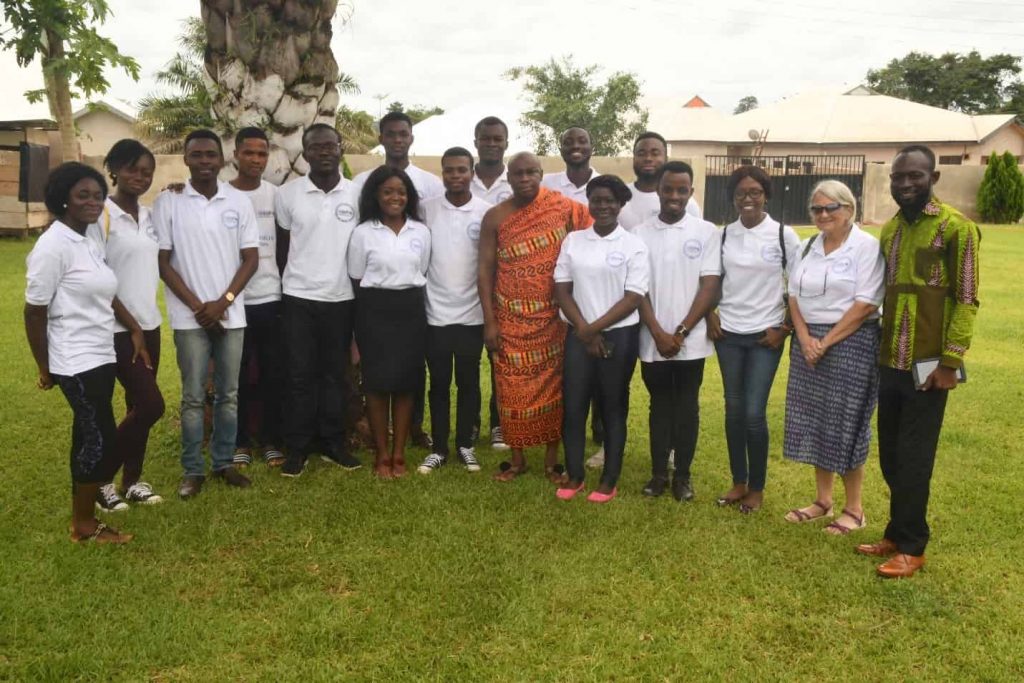
The team's visit to Nana Akwasi Bosompra II, Paramount Chief of the Goasu Traditional Area.
As a first point of call on the tour, the team called on Nana Bosompra I, Paramount Chief of the Goaso Traditional Area in the Ahafo Region. He was thankful to WACCBIP for selecting some of the less-resourced schools in the area as part of their tour. He expressed his desire for similar visits to be extended to other communities and made an appeal for more health interventions against communicable diseases.
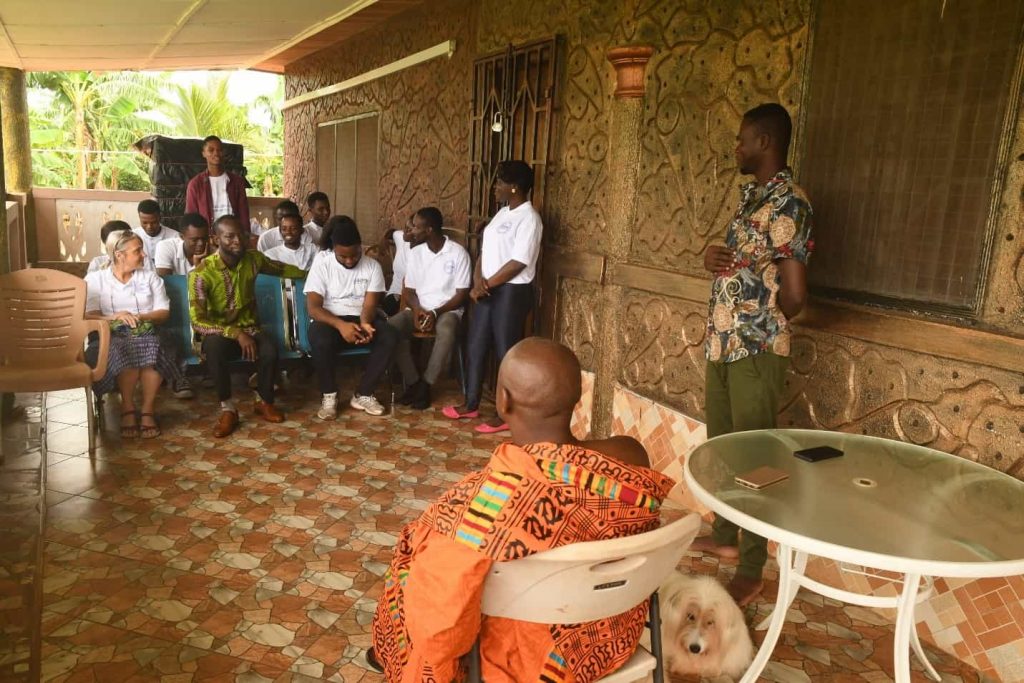
“It is important to know that your visit here will empower students and communities in this Region to maintain good health practices,” Nana Bosompra said. “We understand the need for sensitisation on simple things that will keep us healthy such as keeping our environment clean. We suffer a lot from diseases because of poor hygiene and we are happy to receive your team to help spread awareness on the prevention of these diseases.”
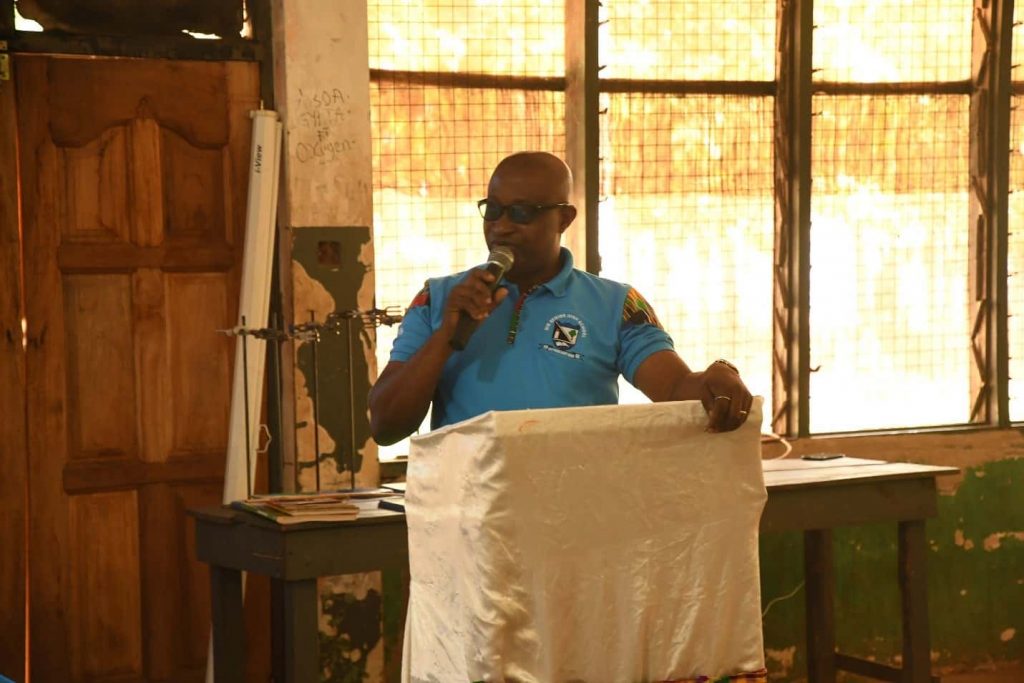
Mr. Samuel Cudjo Takyi, The Assistant Headmaster of Mim senior high school.
At Mim Senior High School in the Ahafo Region, the team was welcomed by Mr. Samuel Cudjo Takyi, headmaster of the school. Mr. Takyi was impressed by WACCBIP's devotion to the promotion of Science education among high school students across the country. He encouraged the students to take the presentations and the training sessions seriously in order to make the best out of the opportunity they had been given.
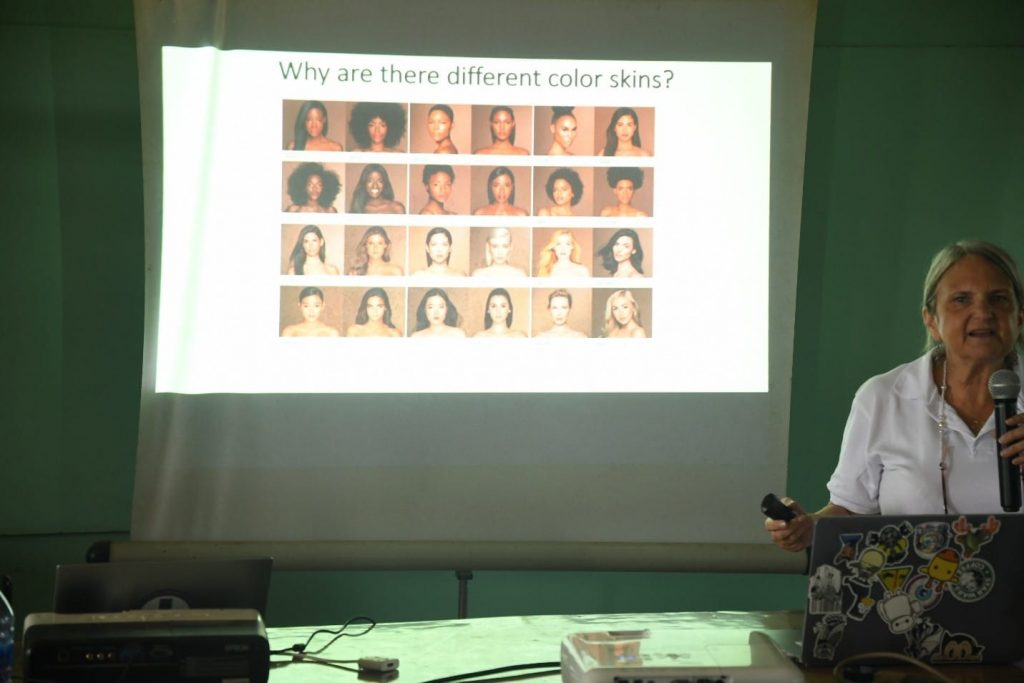
Prof. Joy Power, a senior research fellow at WACCBIP visiting from the University of Colorado.
Prof. Joy Power, a senior research fellow at WACCBIP visiting from the University of Colorado, broke down the Science behind skin pigmentation and albinism. She discussed the evolutionary basis of the differences in skin color, explaining that differences in skin pigmentation were as a result of environmental variation and human adaptation to the environmental differences.
The Graduate Interns also took turns to give short presentations on various topics, some touching on historical aspects of Science, scientific methods and approaches, and careers in Science. Other presentations focused on the work WACCBIP does, its research facilities, available opportunities for the students in Science, and relevant information on applying to the University.
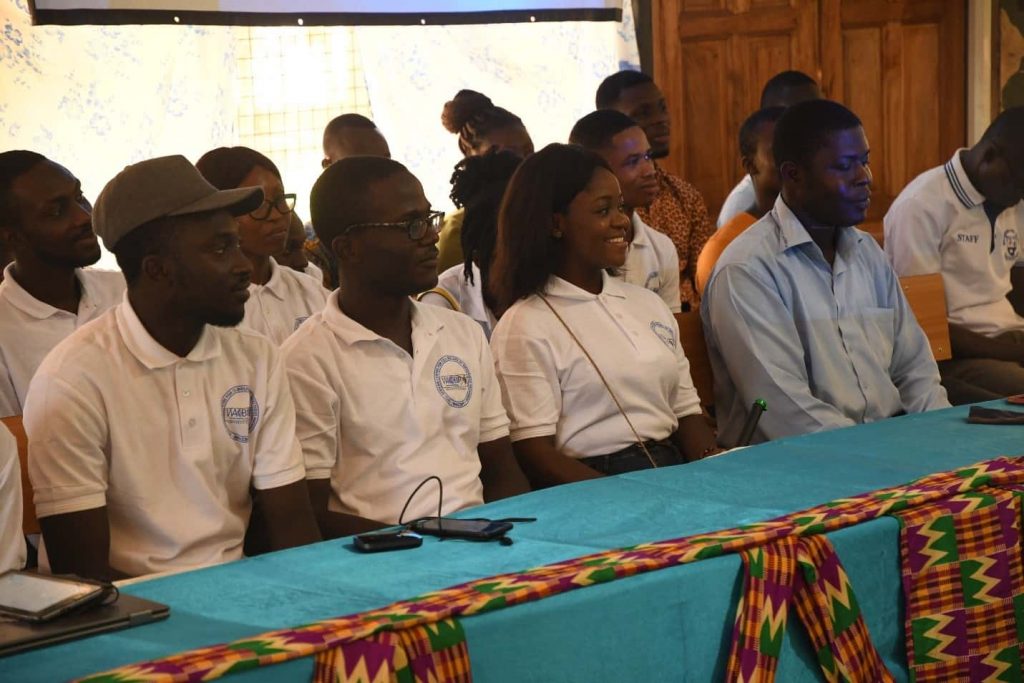
Emmanuel Acquah and Michael Debrah, who spoke about career opportunities in Science, encouraged students to broaden their horizons and not think of Science as a field of study leading only to careers in medicine or engineering, but as a holistic body of knowledge birthed from inquisition and experimentation.
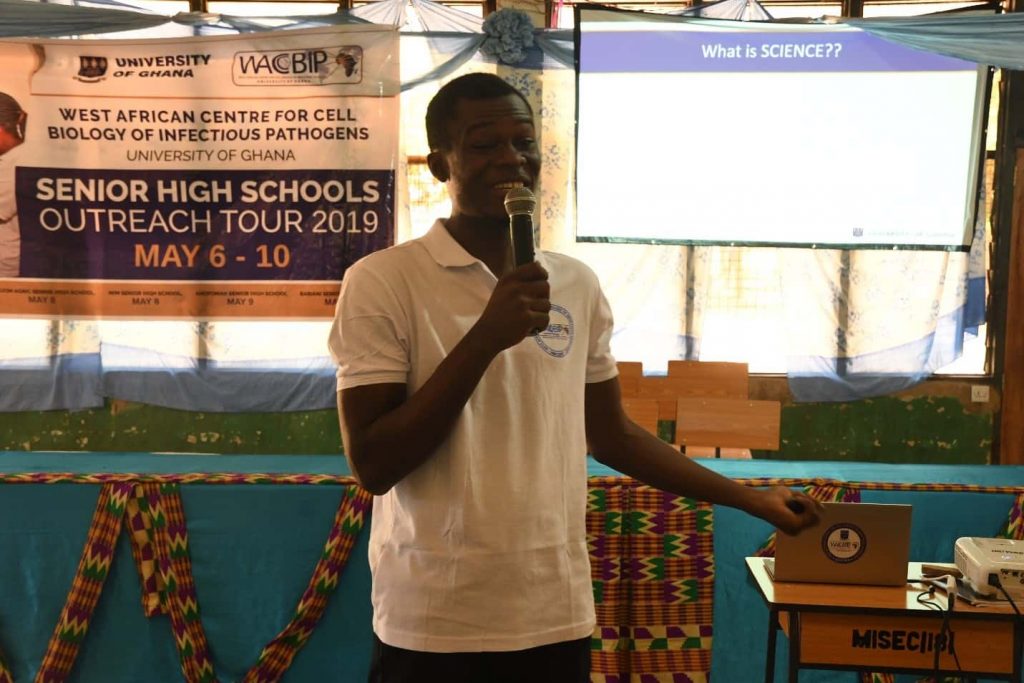
“Science is for everyone who decides to investigate the world they live in. You don't need to be in a lab coat, you don't need to be someone who has gone to university,” Mr. Acquah remarked. “All you need to do is to be interested in the things around you. Investigating what you see makes you a scientist.”
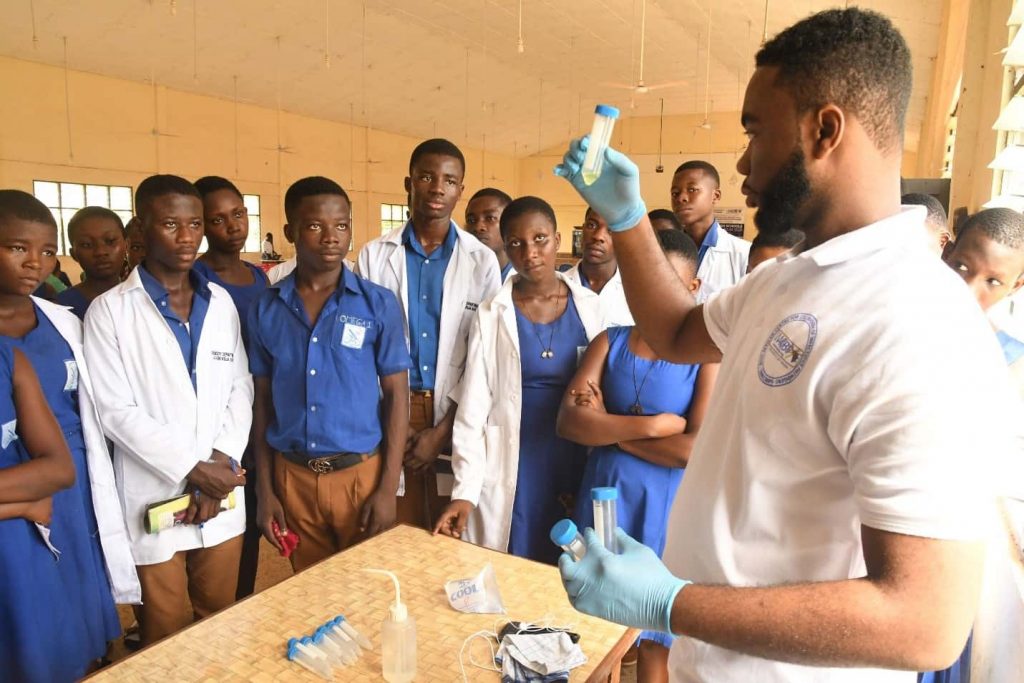
Gervin Delali Kpodo and Ato Kwamena Hayford, who gave short talks on malaria prevention, treatment and control, underlined some of the reasons for the high mortality rates associated with the disease in sub-Saharan Africa. They explained that Plasmodium falciparum, one of the deadliest strains of the malaria parasite, is most commonly found in the tropics, and, combined with other socio-economic factors, places the people living in Africa at the most risk of dying from the disease if untreated.
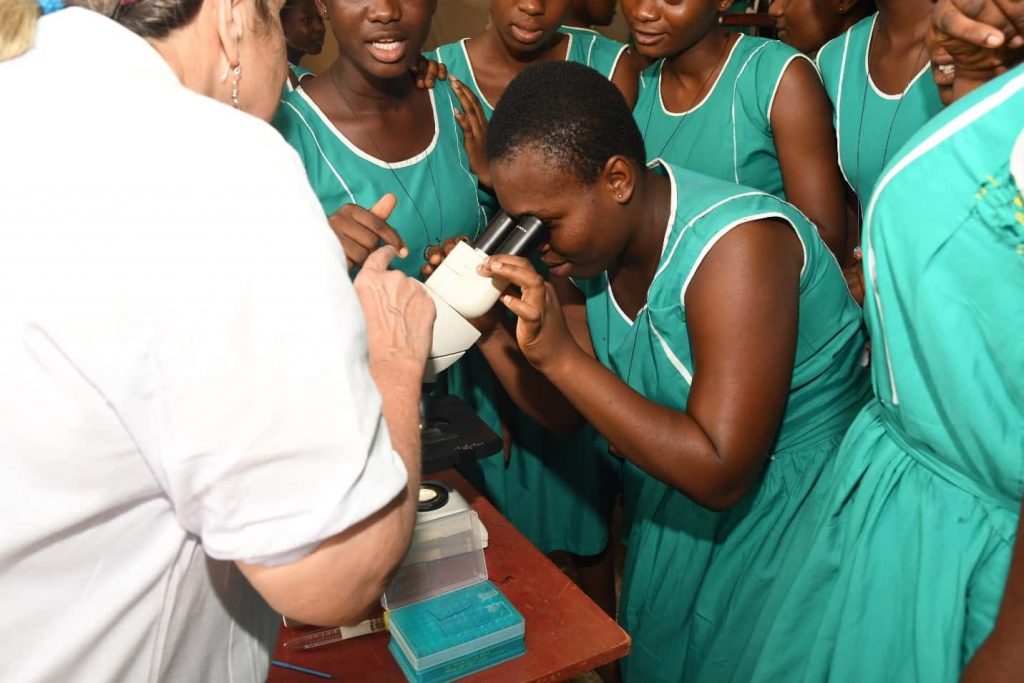
The presentations were followed by practical sessions which exposed students to basic experimentation techniques such as microscopy and testing for malaria with RDT. The students were put in smaller groups to participate in basic experiments, including extraction of plant pigments from leaves and iodine tests for carbohydrates in everyday foods, DNA extraction, and chromatography.
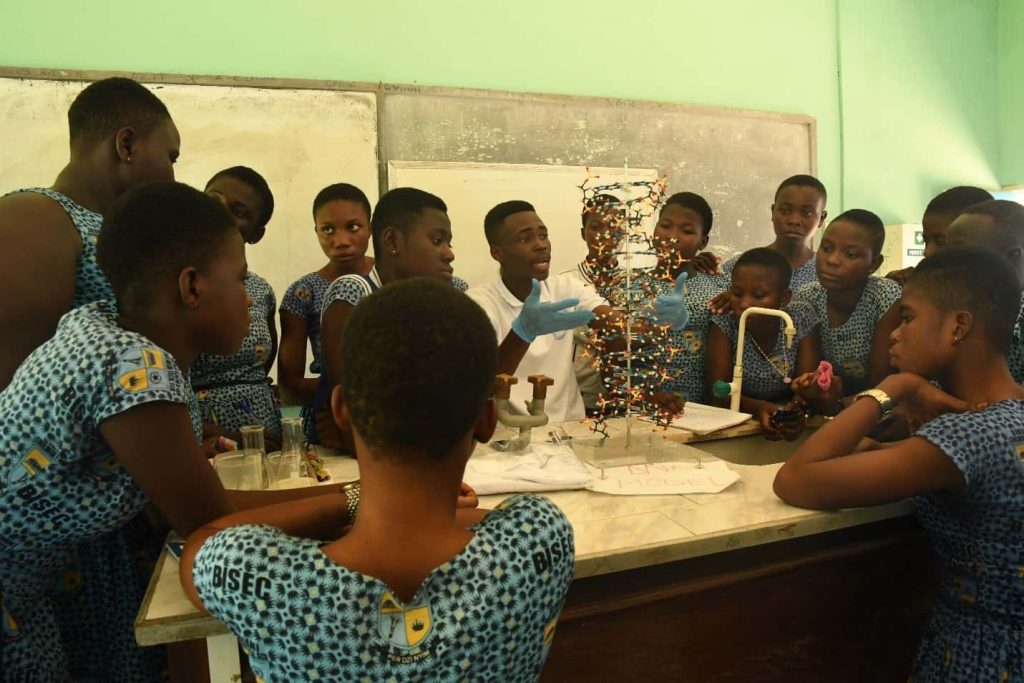
Practical sessions
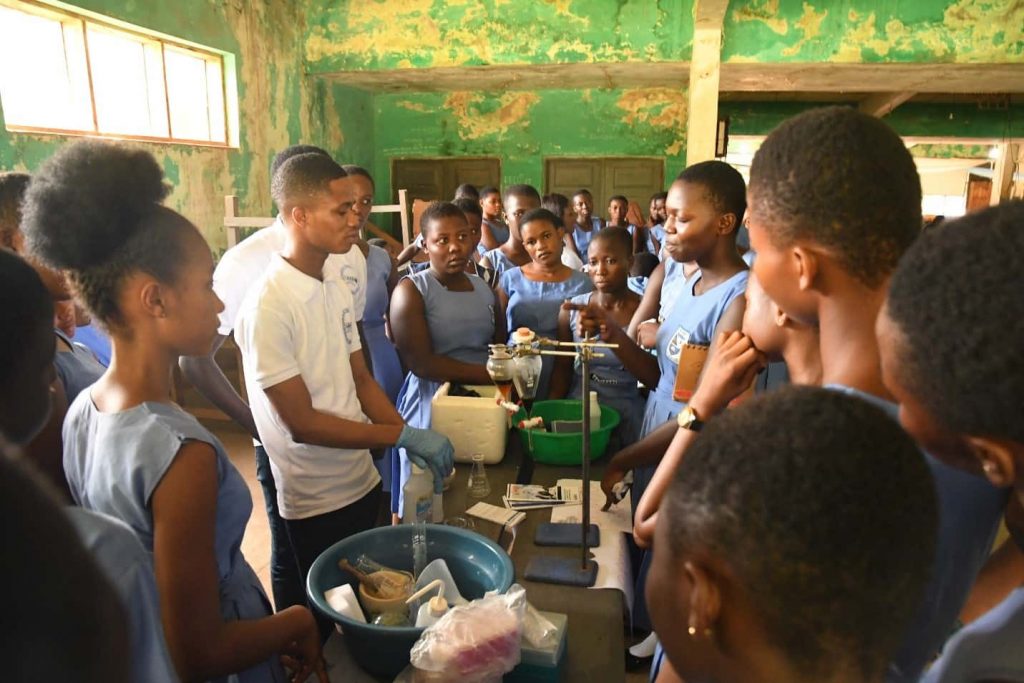
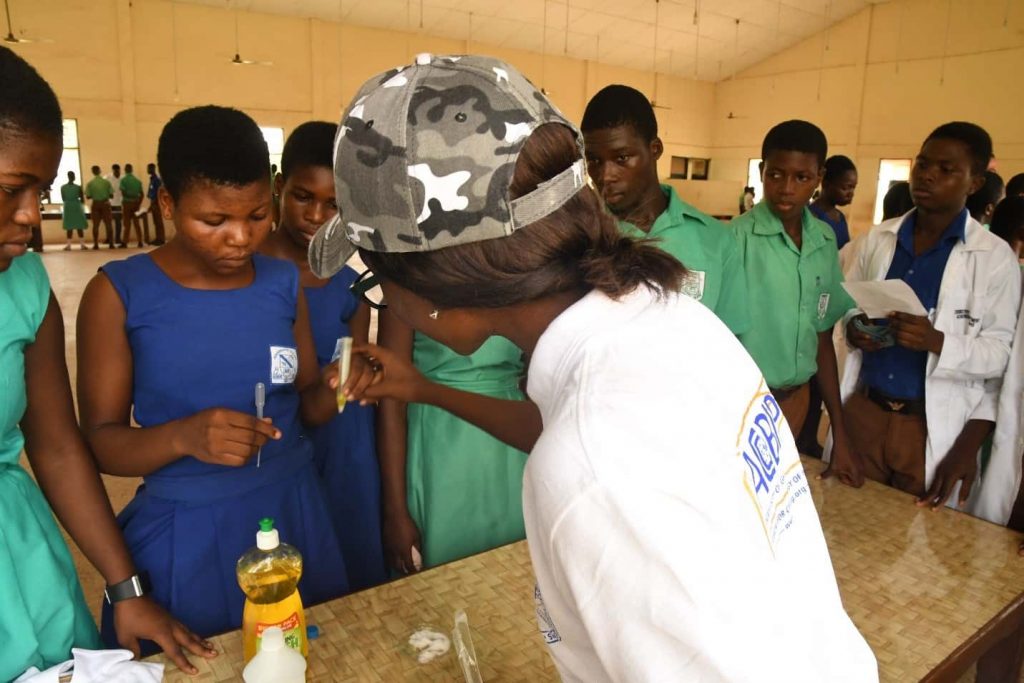
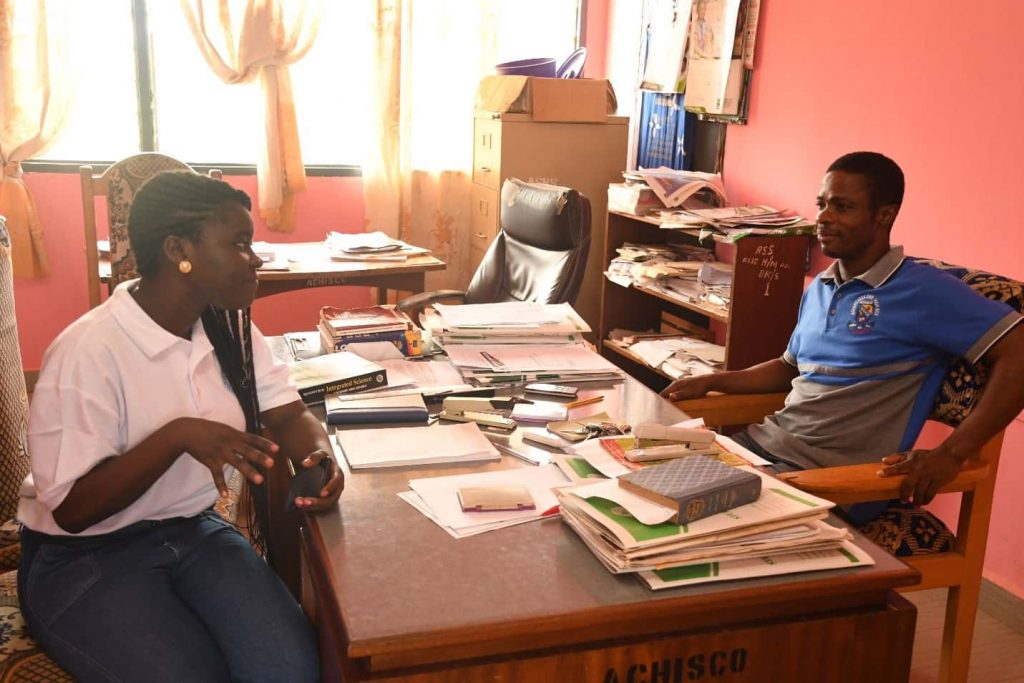
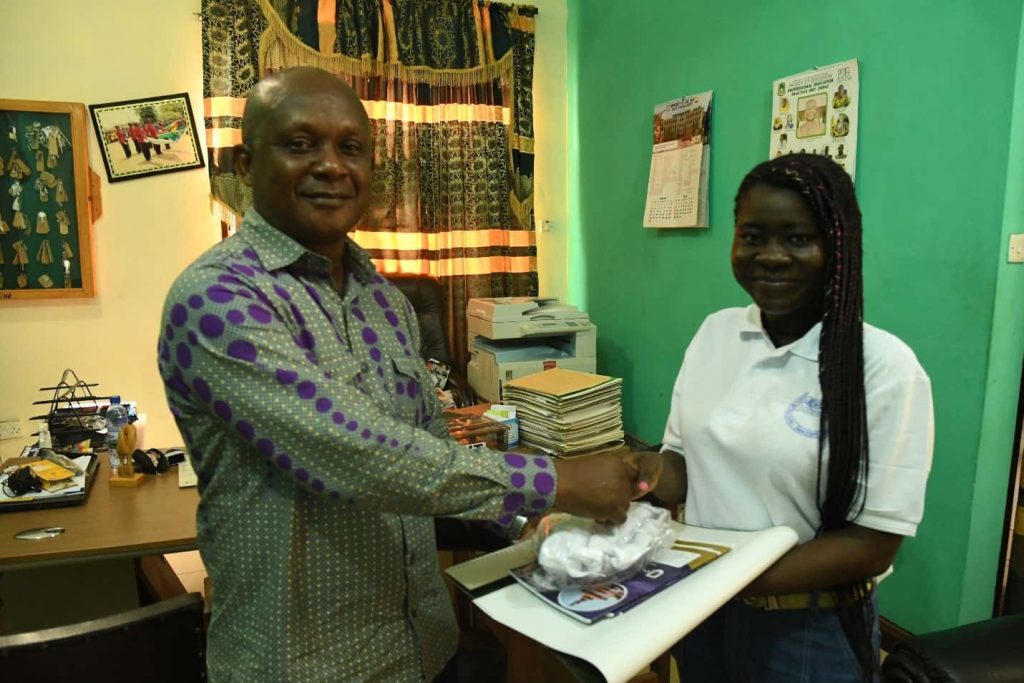
Miss Kyerewaa Akuamoah Boateng, The Public Engagement Officer of WACCBIP presenting items to the Headmaster of Hwediem senior high school.

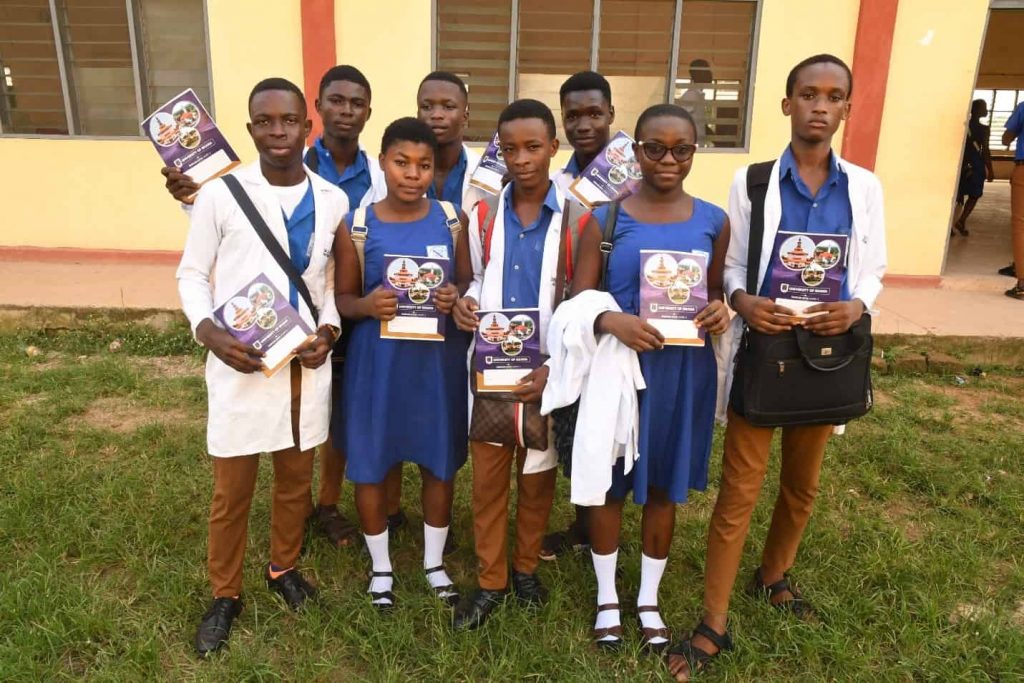
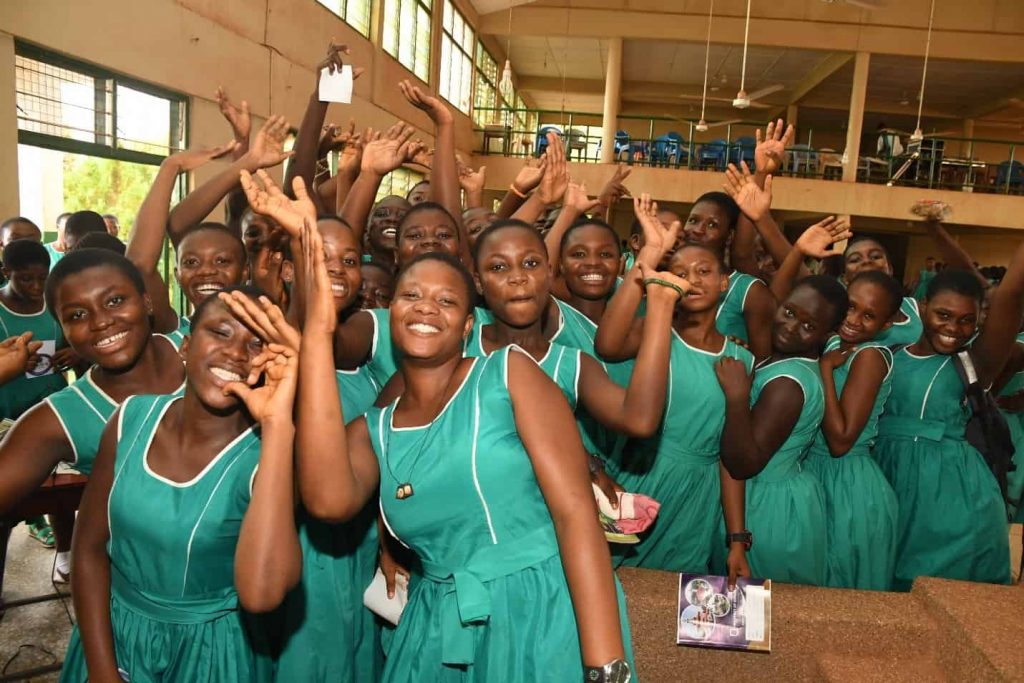
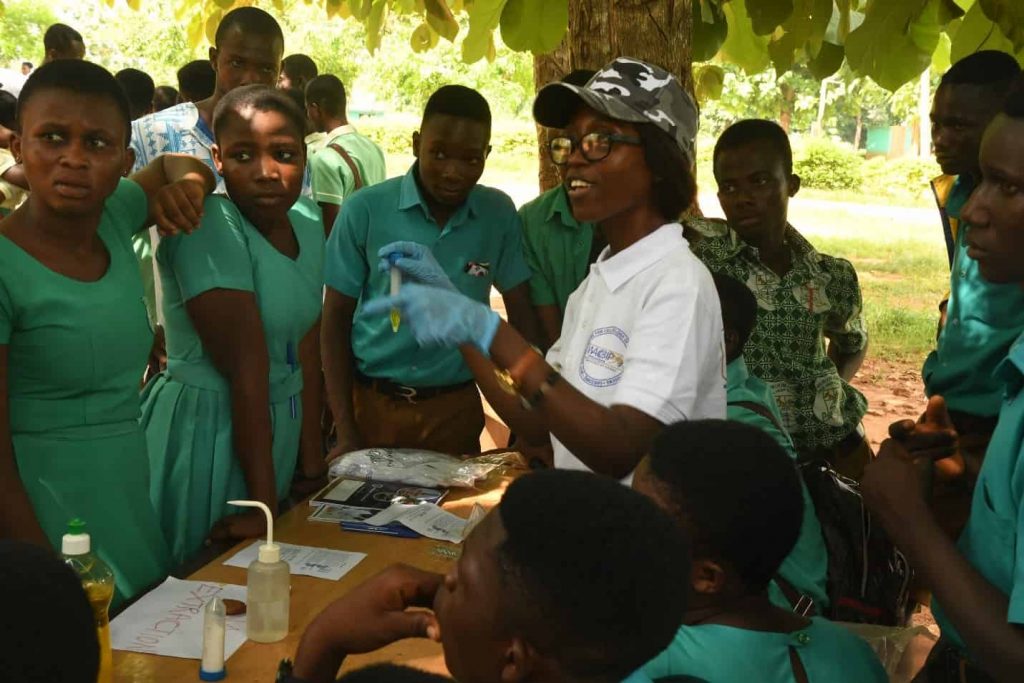
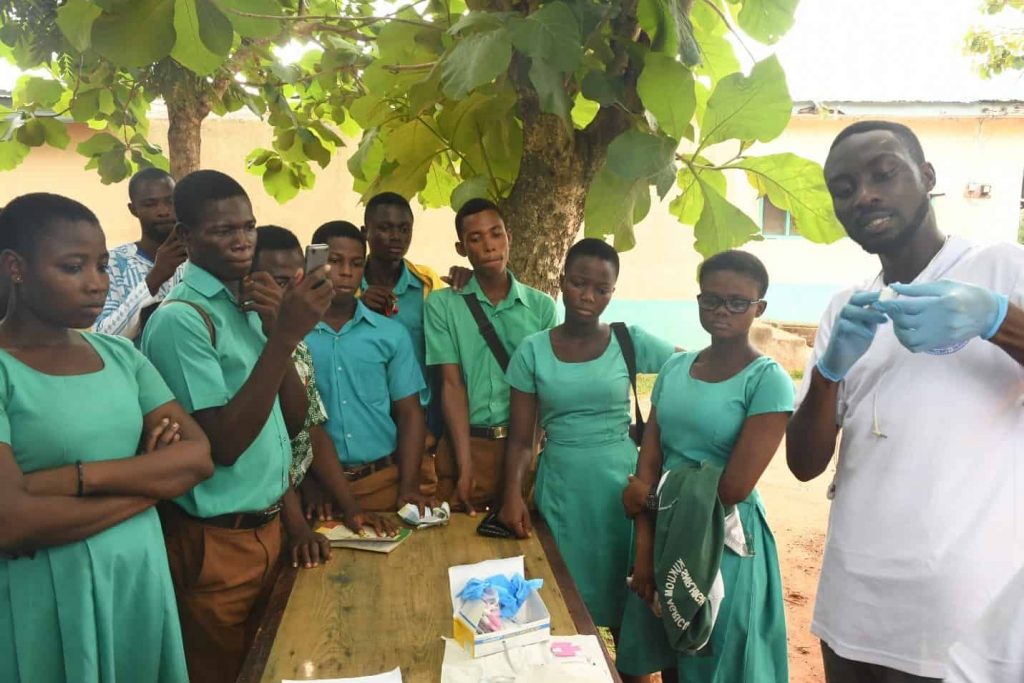
A student of Acherensua Senior High School, Naomi Oteng Ampomaa, was grateful to have taken part in the practical sessions. She was delighted to have gained new knowledge in DNA extraction and running tests for malaria parasites.
“Understanding basic things like this inspires us to go far,” Miss Ampomaa said. “I hope the government sponsors events like these so that students all over the country can benefit from [them]. This will help us become great scientists in the future.”


